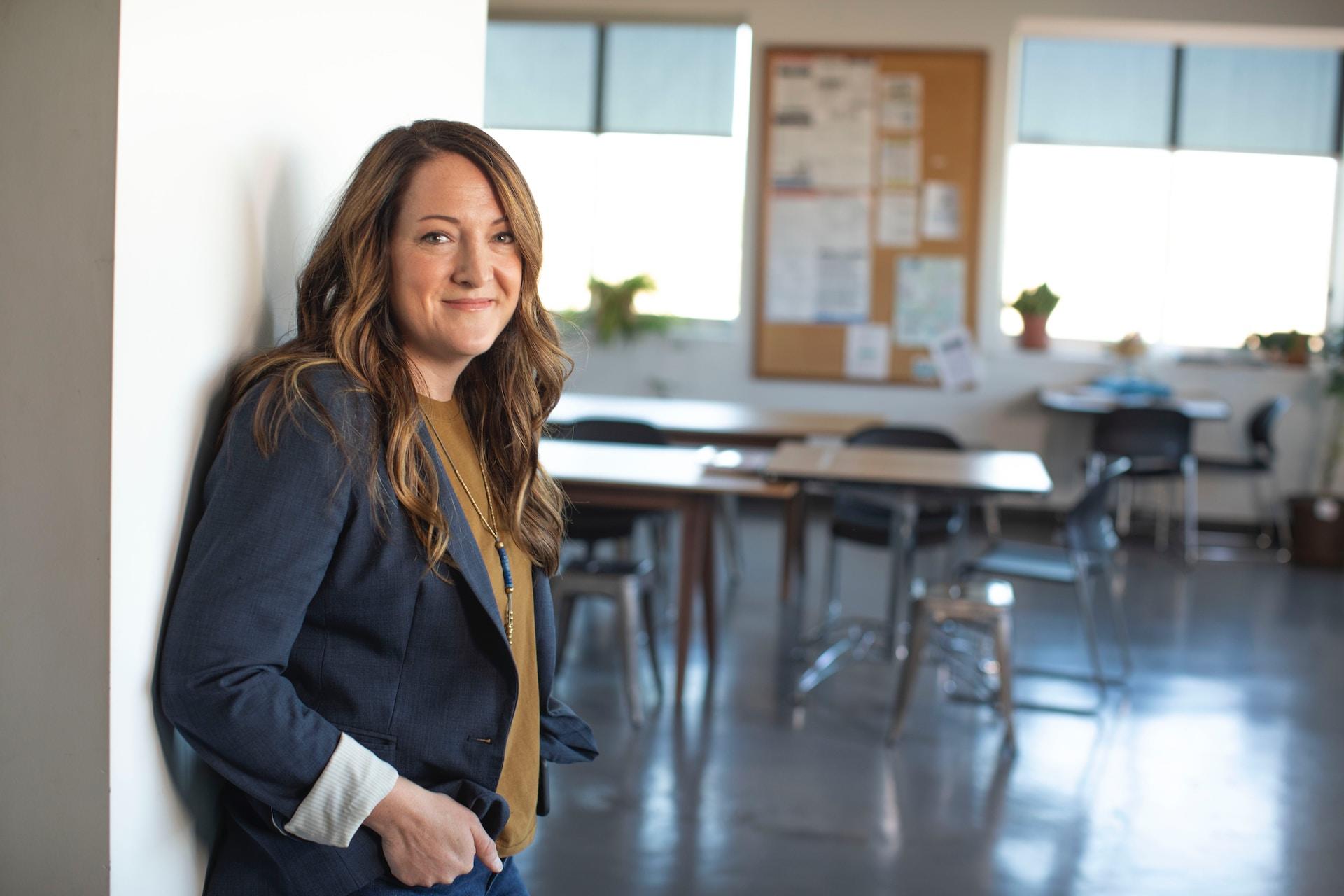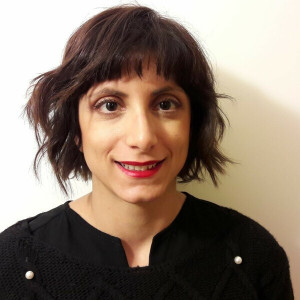"No such thing as bad student, only bad teacher" Jackie Chan, Karate Kid 2010
Since that hero of Chinese cinema uttered that iconic line, everyone from school counsellors to motivational speakers has embraced that philosophy. As profound as it sounds, there's no science to back it up, though. At best, you could say that you and a particular teacher did not have a good working relationship. That doesn't mean the teacher was bad.
Like so much else in the human experience, the concepts of 'best', 'right' and others like it are subjective. What you deem the best, I might find abhorrent. What's right for me might not be the best for you.
So when we say "Learn French with the right teacher", we mean the right teacher for your learning needs and goals. You might not yet have a firm idea of why you want to learn French or what you'll do with your French language skills. Nobody could fault you for that.
In fact, that makes you more open to new learning experiences and more willing to test out different teachers' pedagogies. Treating your education as an experience rather than an academic exercise puts a positive spin on your learning. Along the way, you'll discover what works for you - and what doesn't.
In this article, Superprof talks about aspects of French learning and how your teacher may impact them. We'll talk about your evolving learning style and how it's important to find French teachers to complement it at each stage. We'll also cover some ideas to think about as you search for your first French teacher.

Why Do You Want a French Teacher?
Let's think about the reasons you want to study French. Perhaps you recently discovered that being bilingual brings many cognitive and health benefits; being bilingual can even help you stave off dementia. Bilingual people are excellent multitaskers, too.
That would be a tremendous asset at work. Did you know that people who are bilingual tend to out-earn their peers? Not just because they work more efficiently but because they can connect with their counterparts in other countries. Of all the languages to be bilingual in, you could hardly go wrong with French and English.
French is the language of diplomacy and human rights. French is the official language in 28 countries and 16 more territories. If you want to work in the diplomatic corps or with a non-governmental organisation (NGO), learning French could boost your chances of reaching those career goals.
Are you in high school? Maybe you chose French for one of your school-leaving exam subjects, thinking it would be an easy grade. It may be but why let your learning efforts go to waste? Considering all the benefits of learning French we just outlined, getting serious about your studies is a great idea.
If you're in Victoria, you can search for a French class Melbourne to help you get ready for your exam. Before engaging such a teacher, be sure to ask them about some of the following points. They will help you find the French tutor for your needs.

What are French Levels?
When you review French tutor profiles, you'll find they describe the French levels they teach. It's not hard to understand what Beginner French and Advanced French are. However, Intermediate French is a broad range and Conversational French under-teaches two of the four language learning aspects.
If you're a beginner language learner, you might not know those are reading, writing, speaking and listening. Conversational French courses focus on the last two aspects. So if you're a student preparing for the Year 12 exams or to sit the DELF - the French language certification exam, a tutor specialising in Conversational French wouldn't be the right choice for your needs.
DELF stands for Diplôme d'étude en langue française. This official language exam tests candidates at six levels; A1 through C2. The intermediate range of French skills covers French levels A2 through B2. You must know your level so you can sign up for the right exam.
Having a suitable French teacher means that they can tell you which level your French language skills are on. Likewise, they can help you prepare for your language certification exam because they know these ordeals inside and out. They know where to find the best test prep resources and can coach you to deliver your best performance.
As a high school student preparing for a school leaving exam, you don't need to think about these considerations just yet. Your French skills aren't measured the same way as they are for the DELF. You should focus your French tutor search on those who can help you with High School French, instead.
You may then discover that the tutor you partnered with is equally qualified to coach you through your next language-learning stage. If so, all the better! If not, don't hesitate to search for another mentor to guide the next phase of your language learning journey.

Qualities to Look For in a French Teacher
We all remember that one teacher in school that nobody liked, for whatever reason. Teachers come in all temperaments, just like regular people do. Still, whether searching for French lessons Sydney or searching for a French teacher in Hobart, some teacher qualities should be universal.
Your French teacher should exude confidence in a way that their self-assuredness rubs off on you. They should be flexible in their pedagogy; the best French teachers don't take a one-size-fits-all approach to their teaching. They should be patient but still draw firm boundaries; the tutor who lets their students run over them obviously has not earned their respect.
A good French teacher is understanding and compassionate. Everybody has off days, even teachers. A teacher lacking empathy will have trouble connecting with their students, which could leave learners feeling their mentor is not invested in them.
Teaching French vocabulary and grammar demands extra doses of all these qualities. It may take months for a native English speaker to master the French R and U; two sounds that don't exist in English. If you're just starting French lessons, you need the assurance that your French tutor won't lose their temper or get frustrated.
If possible, read past students' testimonials. Their feedback will give you insights into what you can expect when learning with a particular tutor. You may also check Rate My Teachers. This website allows users to share their experiences with an instructor; it may give you a better idea of what that teacher is like.

What to Consider When Selecting a French Tutor
So far, we've learned that it is important to make sure your teacher is well-suited to your level of French and your learning needs. A high school French teacher may not have the right skill set to teach adults who want to learn French as a second language. They might not have the patience to teach younger students how to speak French, either.
Consider too that a language defines its culture and vice versa. A French teacher intent on language mechanics but unable to explain grammatical gendering in a cultural context might not be the best teacher for you. It's important for your French tutor to tie language learning to French culture at every opportunity.
Likewise, a teacher who never strays beyond the textbook should be cause for alarm. French music, French film clips and podcasts in French all make for lively and engaging lesson starters. Discussing French holidays and traditions expands your cultural knowledge and gives you a glimpse of your teacher's passion for their subject.
Whether you're an adult looking for French lessons or a high school student practising French composition, you need a French teacher with a broad repertoire. Someone who won't just teach you how to conjugate verbs and string French words and phrases together but one who delivers a comprehensive learning experience.

Bilingual or Native French Teacher
This point is worth considering as each has its benefits and drawbacks. A native French teacher knows 'street' French, not textbook French. However, they may lack the skills to explain aspects of the French language properly. A bilingual French tutor knows how hard it is to learn the language and can put their own experiences to work in your lessons.
To become a language teacher in Australia, a person must undergo rigorous language training and demonstrate they are proficient in the language. Such teachers must also prove their abilities; typically through a language certification exam like the DELF. Australian law does not require a private tutor to have any credentials or a teaching license.
Still, you can safely learn French with a qualified French tutor. On the Superprof tutoring platform, every French tutor presents their language credentials before their profiles go live. This gives you the confidence to browse Superprof's more than 16000 French tutors in Australia for your ideal tutor.
No need to let the cost of French tuition stifle your desire to learn, either. Superprof's average per-hour cost is $36 and most Superprof French tutors teach their first hour for free.















